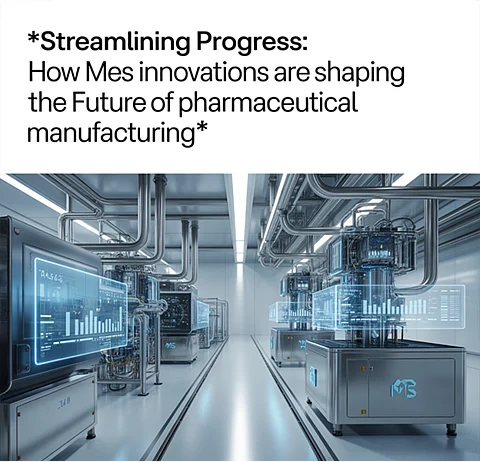

In the fast-evolving world of pharmaceutical manufacturing, digital transformation is no longer a distant vision—it is a reality reshaping work and well-being. Sarita Santosh Dhage, a seasoned expert in manufacturing systems, provides a compelling analysis of how Manufacturing Execution Systems (MES) are transforming both operations and employee experience in the industry. Her work draws on extensive research and frontline insights, giving readers a unique perspective into this technological revolution.
Before the widespread adoption of MES, pharmaceutical manufacturing facilities faced daily challenges that stifled productivity and strained employees. Workers were buried under mountains of paperwork—manual data entry, record-keeping, and compliance documentation took up as much as 40% of an operator’s day, while quality assurance staff spent over 60% of their time on exhaustive paper reviews. This laborious process not only hampered operational efficiency but also fueled workplace dissatisfaction and stress. Accessibility to historical data was limited, often requiring days to retrieve records, and communication breakdowns between shifts led to frequent operational hiccups.
The shift from paper-based processes to MES brought with it unprecedented visibility and real-time data. Supervisors who once spent a quarter of their day gathering basic information now have instant access to production status, equipment conditions, and resource allocation through centralized dashboards. Operators benefit from immediate access to quality metrics and process parameters, enabling proactive intervention rather than reactive problem-solving. This transformation has elevated employee roles from routine monitoring to active optimization, fostering greater job satisfaction and engagement.
The pharmaceutical industry’s regulatory landscape is famously complex, and before MES, compliance was a daily source of anxiety. Regulatory professionals dedicate up to 70% of their time to managing paperwork instead of focusing on meaningful improvements. Preparing for audits could consume 250-300 hours per inspection, with document retrieval alone taking hours. MES implementation revolutionized this dynamic. Automated compliance checks and electronic documentation have slashed the time needed for investigations and audits, reduced errors, and cut down the stress associated with regulatory deadlines. Batch review times have decreased by up to 75%, and regulatory confidence has soared.
Perhaps the most profound innovation of MES is its impact on people. Automated data capture and streamlined workflows have liberated employees from administrative tedium, enabling them to focus on higher-value tasks. Surveys reveal that 75% of manufacturing personnel report greater job satisfaction, citing improved access to information and more engaging work. Stress levels related to operational uncertainty have dropped by 65%, and turnover rates are 25% lower in MES-enabled environments. These changes are not only boosting morale but also driving productivity and retention across the workforce.
MES has redefined what it means to work in pharmaceutical manufacturing. Employees are acquiring advanced technical skills in areas like data analysis, digital operations, and systems management. This new skill set is fueling career progression—operators are moving into specialized roles, and organizations are successfully attracting and retaining tech-savvy talent. Enhanced efficiency has also improved work-life balance, with a 35-45% reduction in overtime and greater flexibility through remote system access. As a result, the industry is experiencing a virtuous cycle of talent development and organizational commitment.
Companies are using innovative metrics to gauge the impact of MES on employee experience. Engagement scores have risen by up to 30%, voluntary turnover has dropped, and knowledge retention from MES-enabled training is up by 40%. Time spent on value-added activities has jumped from 45% to 75% of the workday. Leadership confidence in compliance and data integrity has increased by 32%, leading to more autonomy and less micromanagement for staff. Facilities report that employee-generated improvement suggestions are implemented 38% more frequently, driving a culture of continuous advancement.
Forward-thinking organizations are not resting on their laurels. They are leveraging employee feedback, cross-functional improvement teams, and even gamification to further enhance MES usability and engagement. Regular pulse surveys and dedicated budgets for MES improvements ensure that technology continues to adapt to human needs. User communities are emerging as powerful platforms for knowledge sharing, helping to resolve challenges and foster a collaborative, empowered workforce.
In conclusion, as Sarita Santosh Dhage eloquently states, the true innovation in pharmaceutical manufacturing lies in harmonizing technological progress with human potential. MES stands as a testament to how digital systems, when thoughtfully implemented, can redefine both operational excellence and the employee experience. By valuing the people behind the process, organizations are setting new standards in efficiency, compliance, and workforce satisfaction, ensuring a brighter, more balanced future for the industry and its employees.
